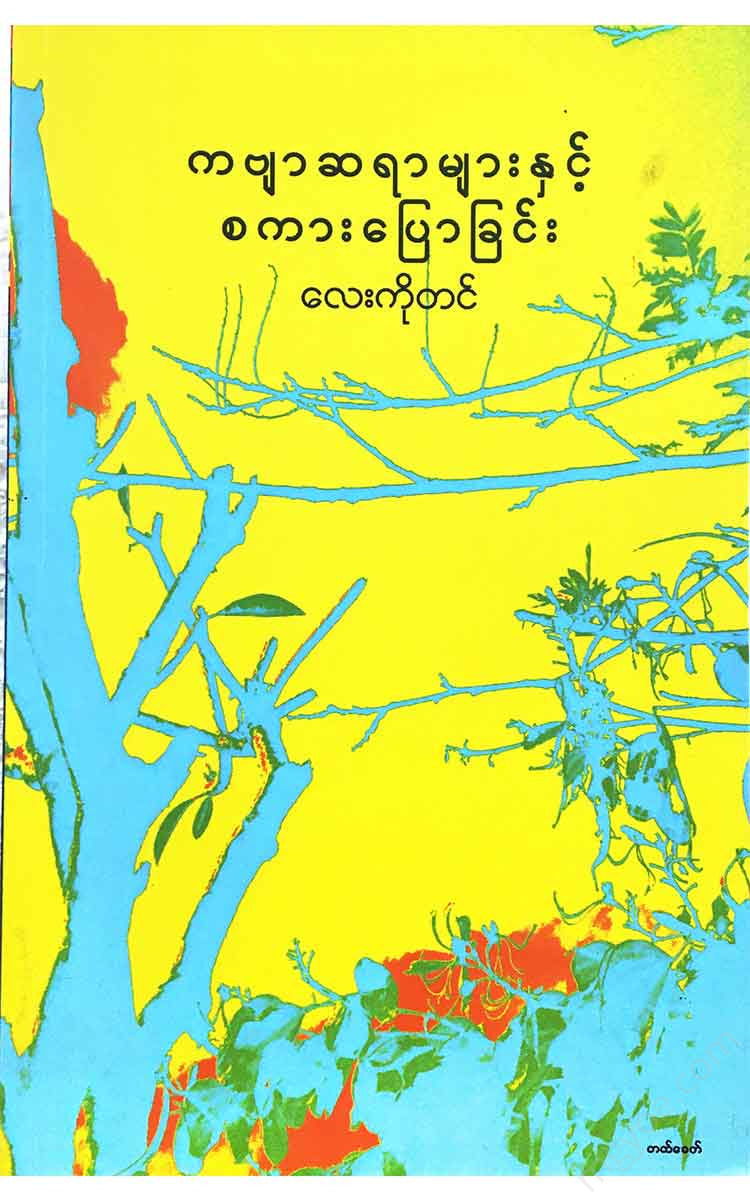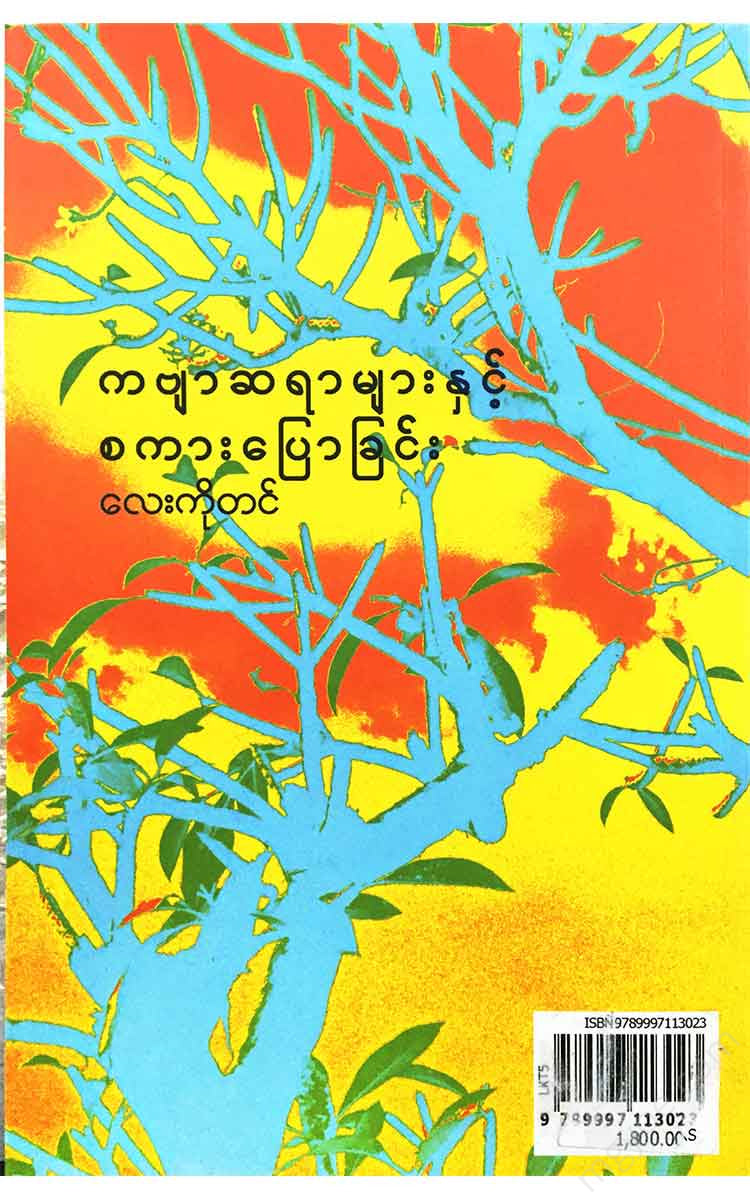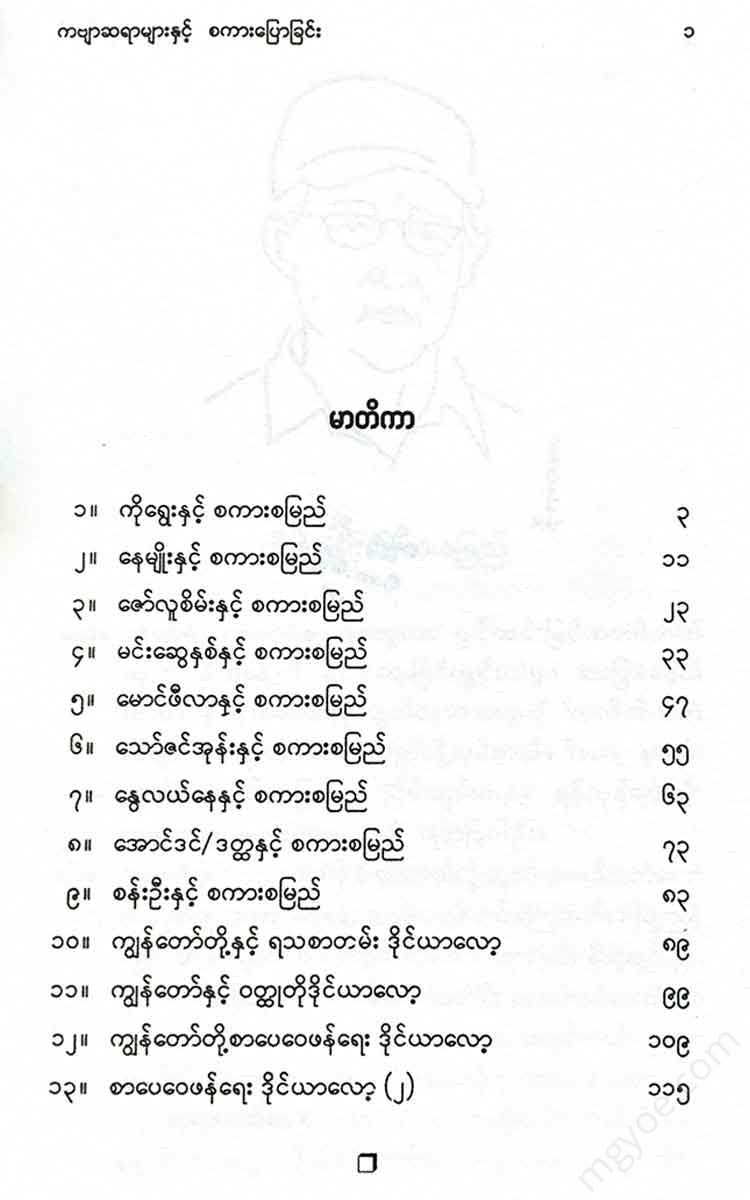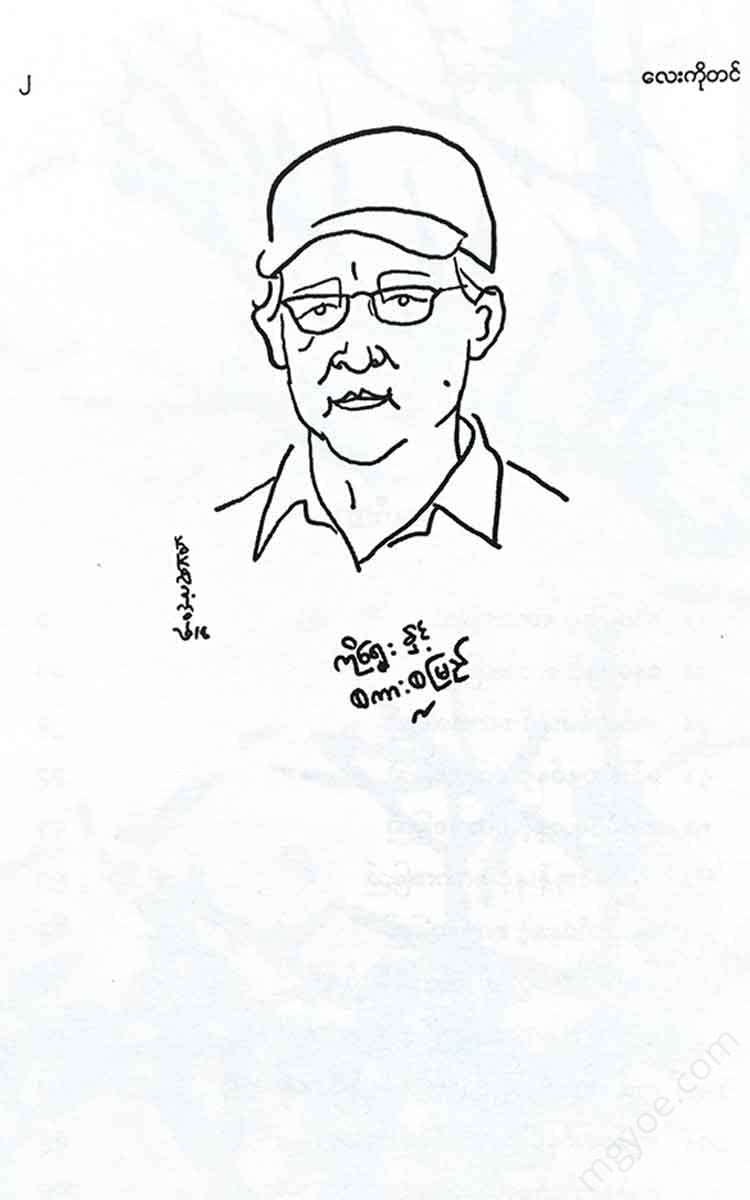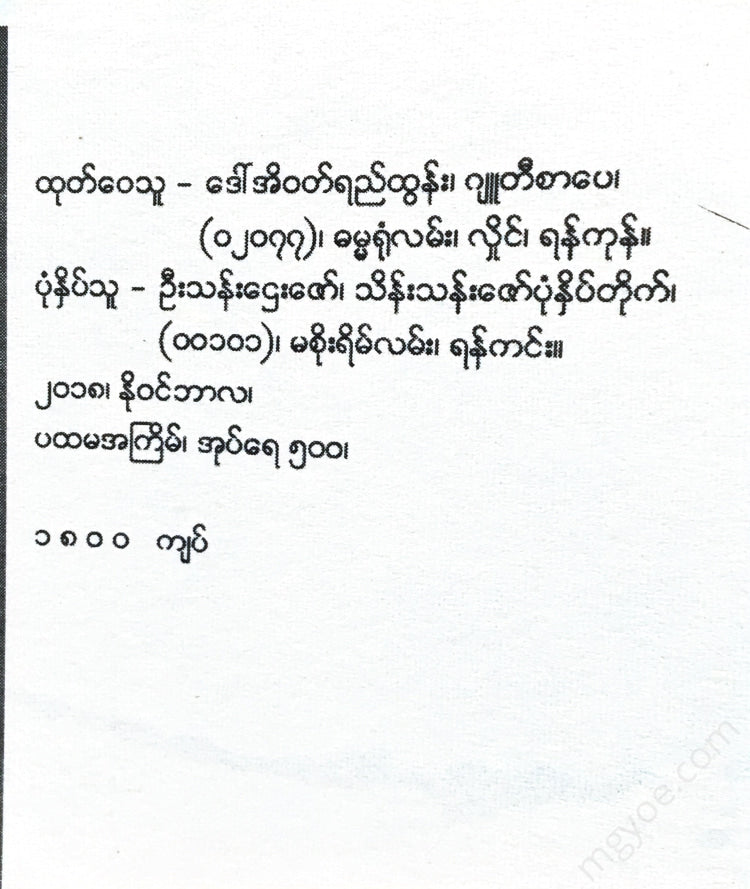စိတ်ကူးချိုချိုစာပေ
Lay Tin - Talking to Poets
Lay Tin - Talking to Poets
Couldn't load pickup availability
Chat with Koyul
Q. Your poetic feelings are transparent.
It is based on today's political scene. What is happening across the country can be understood only by reading "Tatthitthit Kahya". So Nargis, Letpadaung, Myitsone, Peace and Yangon Region
Tell me about how you compose poems.
A. Let me use my poetic sentiment simply. This is the era.
Most people in the world are very poor in time and money. That's why I write my poems to be easy to read. I use simple metaphors. I want them to feel and understand without having to read them again and again. For example, in "Tat-Tet-Tet Kavya" the words "Because I am holding the sword of hatred with my heart" are like this. Those who hate themselves, those who hold themselves back, those who are always
When the leader of the people, Daw Aung San Suu Kyi, said that she would run for office to work with those who had repeatedly attempted to kill her, I was really worried. I was really shocked. That’s why I used this metaphor. I think others must feel the same way. When Nargis swept through, the village of Saluseik, where I was born, disappeared. The village of Kyaukme, on the banks of the Khul River, where I grew up all my childhood, was also destroyed. Many of my relatives were destroyed. That’s why Nargis’ poems were written in a broken heart. My feelings spread to the Letpadaung issue, the Myitsone issue, the issue of peace and refugees, the issue of Rakhine State. I wrote many poems. These issues are not just about the locals. They are about all citizens.
Q. And what is happening in and around Yangon?
I can't stop looking. Let's say the poem "Don't give Yangon a piece of cake." The metaphors are powerful. For example, "Like a piece of meat pulled by a vulture... Yangon is torn into pieces." I want to know how the poem flows in the teacher's mind.
Yes.
Answer: “Don’t give me a Yangon shop” is a poem that encourages me to write.
I think the two poems “ Myothein ” that I wrote about Mandalay are the main ones. When I came back from Mandalay , I wrote “Myothein”. I wanted to write about Yangon, but I couldn’t. I came to Yangon almost every day. Once, I didn’t go to Sule Park for four or five days. When I arrived, I was surprised. Sule Park was no longer there. There were no bookstores. There were no public toilets. There was only a large empty lot surrounded by fences. I was really surprised. Yangon is changing so fast. I had a thought there. I thought that I could no longer give Yangon alms. I was living in Ahlone. One day, I was walking towards Kyim Myint Daing and I was surprised again. I couldn’t see the waterfront. There was no football field in Ahlone either. It was a temporary market. I didn’t know what would happen next. Even when I was going home in the evening, I thought, “Who has taken over our road, who has bought our house?” That’s when I wrote the poem “Don’t give Yangon alms.”
Q. Your first book of poems is Clear Water.
Tell me about the origin of the waterfall before it became a "thang".
Think about how the next teacher built his own "own style" in the same vein as his original poetry. About 20 years of writing poetry.
Answer: The background of the poem "Clear Waterfall"
The poems are very long. To summarize, the word "waterfall" has been influencing me for a long time. At that time, the leader Aung San Suu Kyi was under house arrest. I wanted to support her in her memory, so I wrote 4 volumes of poetry called "waterfall". At that time, a group of our friends
In addition to me, Win Myint, Moe Way, Khat Than Paing Soe, and Wunna Ko, Ko Moe Thi Zaw, Ko Win Maung, Ko Win Lwin, Win Zaw Lwin, Kyaw Zaw Khaing, etc., we worked together (I, Win Myint, Moe Way, and Wunna Ko each prepared a book. It became 4 different poetry books.) It was a lot of fun during the military regime. Now, the poems in those 4 books have also been scattered on the pages of magazines. With that bond, I wrote my own poem, and finally I used “Clear Waterfall.”
I don't really pay attention to my own style. I think it's like I can't see myself walking. I use fewer metaphors in my poems than before. I use words that are almost the same as the original. If I do use metaphors, I'm careful to write them in a strong way.
Q. You also have an international feel. Your palette
From the poem "A Question from a Young Child" to "Zan Nu"
"Banza" poems, let's say.
A. I am also interested in international affairs. Mainly
I get to know international affairs through journals, magazines, newspapers and other media. I stand on the side of weakness rather than right and wrong. I write poems for the children of Palestine, and I write poems for the children of Georgia.
Zanu and Banga are characters from my imagination. I want to warn our society in this time. Injustices are coming like waves, like wildfires, and it is not enough for us to just wait for our own laws. I want us to know that we must protect ourselves.
Q. Last question. Many poems today
They are creating emotions in the political landscape of Myanmar. Some of them read like political manifestos. Let's see. As a teacher, when creating a poem as an art object, how do you try to be in harmony with the subject matter, and how do you create art with non-objectism?
How to create well... I would like to say the last thing. I don't know how to answer the question of trying to harmonize poetry and content. I try to be free from desire and art.
It is more difficult for me to create well. I am not free from desires. I am a person who prioritizes feelings, so I stand on the weak side. That can lead me away from the truth. Rather than being good at art, I strive to make my poetry the best it can be. .
A. Interview with a Fly Editor Due to the difficulties of the page and time of our magazine
I'll just ask. You're a fly, so I'll be brief.
Fly
Which era do you like best out of all the garbage you've collected? Rather than talking about eras and systems, let's talk about years. The last two decades of the twentieth century are our favorite cesspools, the most disgusting and the weakest.
